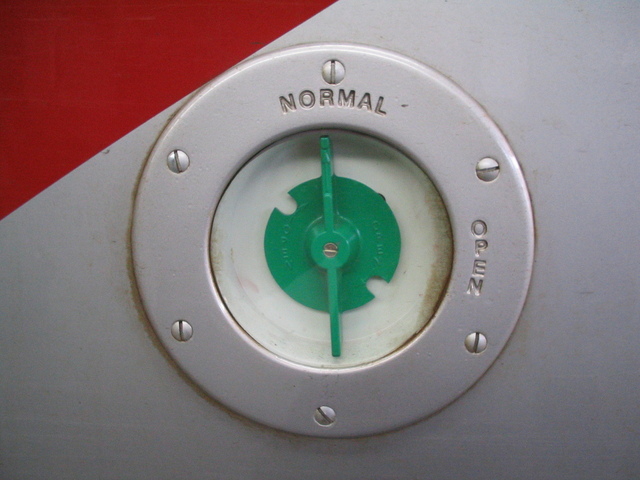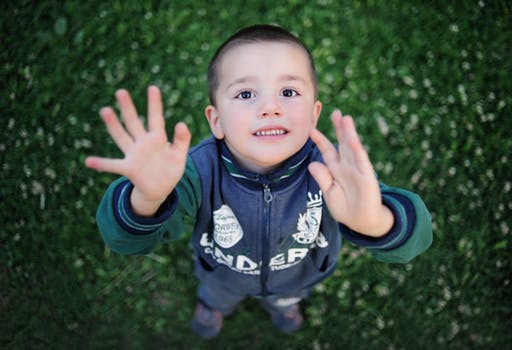
Image credit: simon gray
*
Sometimes, as a mom blogger, I get the feeling that my kids somehow tap into the wavelength of a post I’ve written – before I even post it. And then they come to me and totally disprove whatever I’ve written about them.
For instance, the night that I wrote “Polite Conversation,” about Neil using lengthy delayed echolalia at the dinner table one evening, he came into my office – minutes before I posted it – and began what was undoubtedly the most incredible conversation I’ve ever had with him. I honestly didn’t realize that he was capable of a serious back-and-forth discussion regarding intangible ideas for over half an hour. And he revealed so much more about himself during the course of it.
He started off by running into my office, eyes wide. “Mom! Have you heard of something called ‘home births’? Because I think I want to have my children that way and I wanted to see what you thought of it.”
Definitely didn’t see that coming. “Yes, I’ve heard of them. But I think that you should talk to your wife about it first. And I don’t think you need to worry about that for a long time.”
“You mean when I’m 18?”
(!) “No, I think that’s a bit early. You need to have a good job and a home for your family before you start thinking about having children.”
“20?”
“I think that’s a bit early also.”
“Well, I need to be prepared.” That’s six years of Scouting talking.
Then he sat down on a chair that’s across from my desk, and the topic changed to dating. He mentioned, quite wisely, that he needed to have a girlfriend before he could have a wife, and that there didn’t seem to be any girls at the high school who really understood him. He said that some of them were nice to him, but he was worried that they might not be sincere. “What if they ask me out on a date, but they’re just trying to trick me? How will I know the difference?”
My heart ached to hear him say it. He already knows that he is vulnerable to this. I told him that one thing that will help is to be friends with a girl before dating. And then, I pulled out my new copy of The Unwritten Rules of Social Relationships: Decoding Social Mysteries Through the Unique Perspectives of Autism by Temple Grandin and Sean Barron. It had just arrived from Amazon mere days before, and I had been waiting for the perfect opportunity to tell Neil about it. I couldn’t have planned this better if I tried.
He seemed interested. I asked him if he wanted to read it himself or if he wanted us to read it together, and he opted to read it on his own. I was thrilled by his positive response! Somehow I had tapped into what he needed – before he even asked. But of course, we autism parents do that all the time, especially when our kids can’t ask.
We talked some more. We conversed. He made eye contact, he posed ideas and waited for my response, and then he responded to my ideas. Sometimes he added even more to his response. His voice inflection was perfectly appropriate, he tried new words and asked me if he used them correctly, he was fully engaged. My heart was bursting with joy, because for many years I didn’t know if such conversations could ever take place.
Then at one point he leaned forward in his chair and said, “I think I’m different from other autistics because I want to be a normal man and have a wife and family.”
I tried not to let my face show too much emotion, but lately my son has been causing me to tear up a lot. “Oh, honey. Yes, your autism makes you different and makes some things more difficult to achieve, but don’t ever think that you can’t be a normal man if you don’t have a wife and family. Whatever you do with your life, you will always be a normal man. In fact, better than normal.” I got up, walked over to him, and gave him a hug, which he stiffly accepted (the usual for him).
He left then, book in hand, and I couldn’t help but cry. I always think about my son’s future and how different things will be for him. But what I hadn’t thought about is the now unmistakable fact that he is also thinking about his future, his adulthood. And then I remembered something that I had forgotten to tell him. Something I wanted to make sure he knew. I dried my eyes and walked to his room.
“Neil, I just wanted to tell you that when you’re an adult, I’ll still be here to help you, to talk with you. I’ll always be there for you.”
He paused a moment, taking that in. Then he said, “Good, because I don’t know how to get grants for college.”
Oh, honey. I got you covered.





